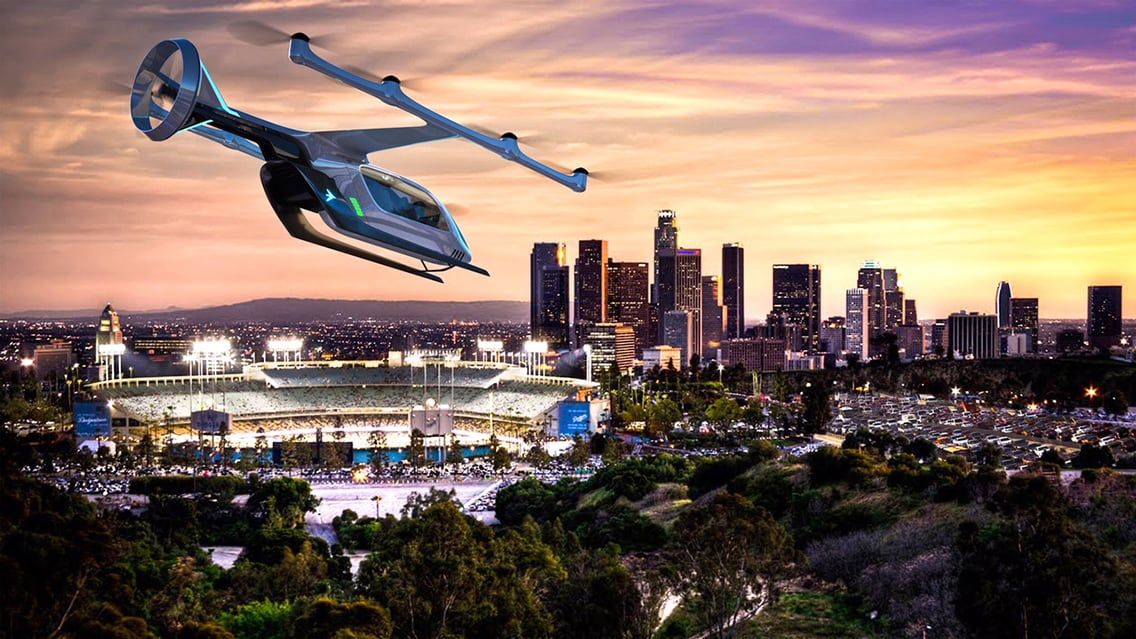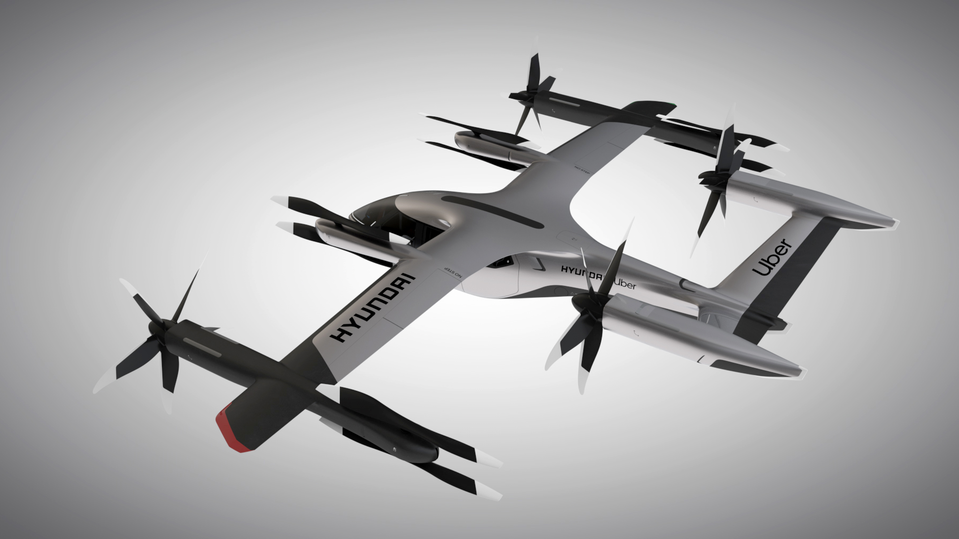Uber hits the eject button on its 'flying taxi' plans
First self-driving cars, now flying taxis: Uber is shedding side projects as it seeks to turn a profit.

Uber is selling off its flying taxi division to rival Joby Aviation and investing US$125m in the startup, marking the second time this week Uber abandoned a side project as it aims to turn a quarterly profit next year.
Joby will acquire Uber Elevate, the company’s division that imagined a future where air taxis shuttled people above traffic-jammed highways.
Uber Elevate had also operated a helicopter service in New York City, but it suspended flights during the pandemic.
Read: How to catch an Uber Helicopter between New York and JFK airport
In January this year, Uber tapped Hyundai to develop a four-passenger electric 'aerial taxi'.
The pilot-driven craft would be able to take off and land vertically, accommodate four passengers and cruise at up to 320km/h per hour, with a 100km range.
There was to be a hand luggage allowance of 18kg per passenger, with larger checked bags sent ahead separately.
Uber hoped to begin trials in the US in 2020, with commercial services offered in selected cities including Melbourne by 2023, which would see business travellers and other time-pressed souls darting between city rooftop and airport landing pad in 10 minutes for less than $100.
Uber's exit from Elevate and handoff to Joby follows the playbook Uber Chief Executive Dara Khosrowshahi has used this year to shed multiple divisions as the company turns away from its science fiction-type ambitions and focuses on trying to make money.
In May, Uber led an investment round of US$170 million in the scooter rental company Lime, and gave the company its Jump bike-sharing business.
Earlier this week, Uber sold off its self-driving car division to Aurora Innovation and invested US$400 million in the startup.
Joby aims for 2023 lift-off
Joby said it intends to operate its electric flying taxis as soon as 2023 and that the two companies will integrate their services into each other’s apps.
Uber had touted its Elevate division over the years, hosting summits in Dallas, Los Angeles and Washington, D.C., for industry leaders to discuss how to turn its Jetsons-like vision into reality. The unit has fewer than 100 employees, Uber said.
“We’re excited for their transformational mobility solution to become available to the millions of customers who rely on our platform,” Khosrowshahi said in a statement about the Joby deal.
California-based Joby’s backers include Toyota Motor Corp., which invested US$394 million in the startup earlier this year; Capricorn Investment Group; and the venture capital arms of JetBlue and Intel.
The company said its all-electric vehicle can fit four passengers and a pilot, and fly up to 150 miles on a single charge. Its prototype vehicle looks like a cross between a helicopter and a drone.
Additional reporting by David Flynn
This article is published under license from Bloomberg Media: the original article can be viewed here






Hi Guest, join in the discussion on Uber hits the eject button on its 'flying taxi' plans